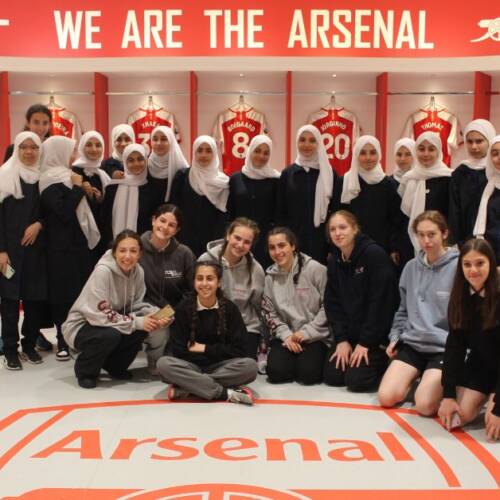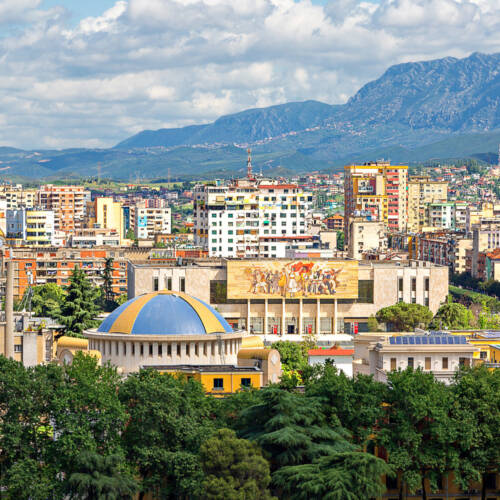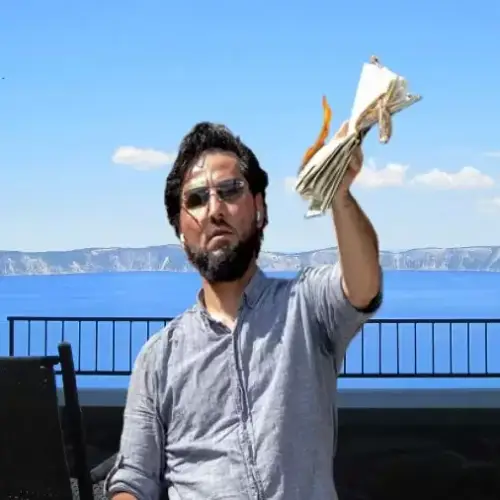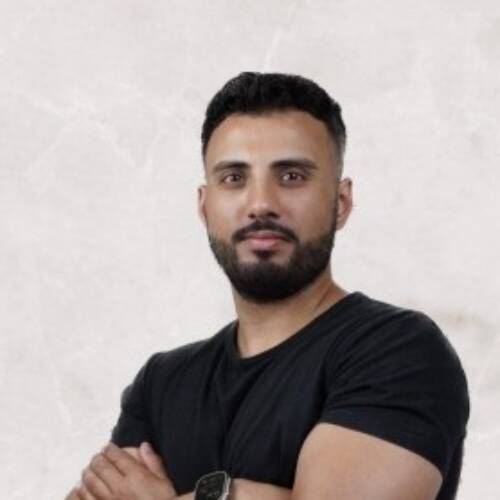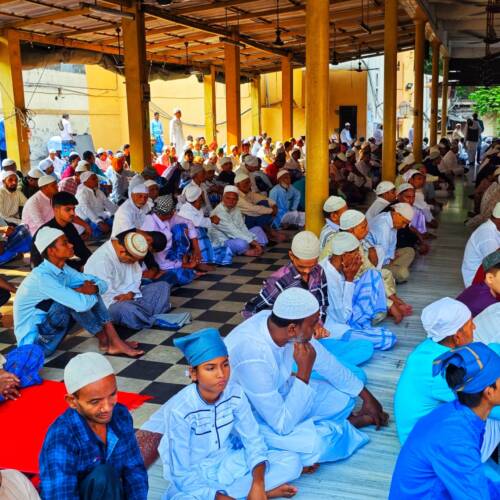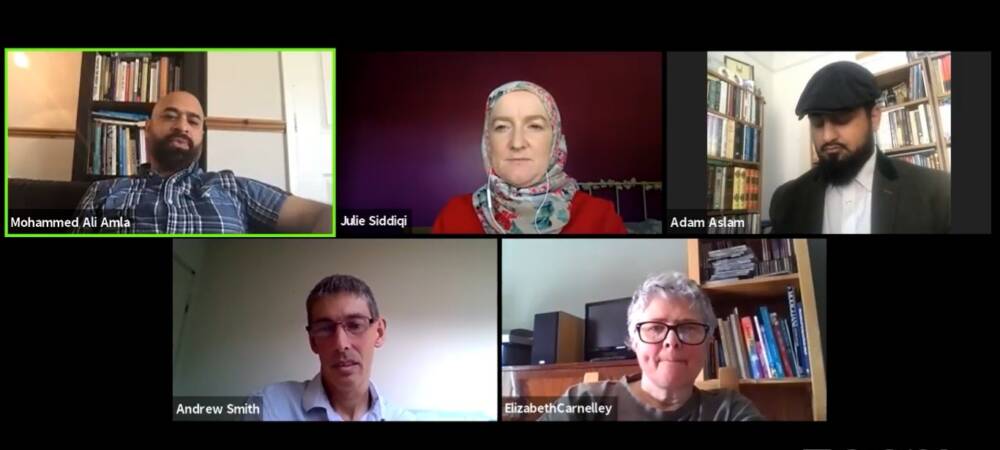
Christian-Muslim Encounters: Critical Reflections on Evolving Interfaith Work
25 Sep 2020In collaboration with Urban Muslimz, Christian-Muslim Encounters held its first webinar last Thursday. Hosted by our dear friend, Mohammed Ali Amla, the webinar brought together several prominent names from within the interfaith community, as well as myself.
Aptly titled “Moving Beyond Tea and Samosas”, the webinar is the first in five monthly webinars, focusing on a different aspect of Christian-Muslim relations in the UK.
Our panellists consisted of:
- Julie Siddiqi, an activist of over 25 years, whose passion and drive is unrivalled within our communities. Her most recent and prominent work has been with Together We Thrive;
- Elizabeth Carnelley, Programme Director of Near Neighbours who have done some amazing work in grassroots communities while bringing people from different communities together, which funnily enough provided the catalyst to my own interfaith journey;
- Andrew Smith, Director for the Interfaith Relations for the Bishop of Birmingham. He has been involved in interfaith work for over 20 years helping different faith communities meet, form friendships and discuss issues. He also partakes in the Faithful Friends Project as well as being the chair of a charity called The Feast;
- And of course, myself, Adam Aslam, the young Yorkshireman! I am a freelance youth and community project worker, heritage researcher and Muslim chaplain. I have been involved in intrafaith and interfaith work since I was 13; working to promote youth voices through organisations such as Leeds Muslim Youth Forum, Faiths United Youth Network and the Concord Interfaith Fellowship.
Together, we critically reflected upon our experiences of various aspects of interfaith and how it could be evolved. We also discussed the rise of the far-right and how interfaith plays a major part in countering their narrative.
“We need to have an honest discussion about how effective interfaith has been”
The main focus of the discussions was on the portrayal and success of interfaith discussion and activity, with Mohammed asking whether we needed to move away from “just having tea and samosas”. The question was that many of the issues faced by faith communities today cannot be solved alone by sitting down and exchanging ideas over snacks and drinks.
Most of the presenters disagreed with this premise, and highlighted that casual and friendly interactions are a key to starting a working relationship.
Julie was especially adamant that the various projects she worked with, the Big Iftar, the Coventry Iftar and Near Neighbours, to name a few, were instrumental in launching friendships, a point agreed by Elizabeth and me, emphasizing that personal relationships are the key to breaking barriers.
“Listening to people is fundamental,” Elizabeth said, adding that it helps people “understand and learn from each other’s point of view”.
Similarly, Andrew explained that reaching a point in a relationship where two people can say “I disagree completely, let’s have pizza” is important and a good measure of genuine friendship building through these interfaith encounters.
My view on the matter was that interfaith needs to diversify and become more inclusive beyond the ‘big three religious communities’ also including more people of other faiths, as well as creating a space for people of no faith, alternative philosophies and those who are former members of a faith ie. Ex-Muslims, and Ex-Christians to engage within the interfaith sphere.
I also feel that some ‘interfaith’ events can sometimes be too formal, sometimes reverting to tick-box exercises and shows of supposed tolerance and ‘openness’. Therefore, such an atmosphere doesn’t always allow people to feel comfortable or to be their authentic selves, which is important when discussing difficult and often personal topics or when asking genuine questions. Dialogue has been difficult, made worse by the internet and polarisation where many people take a ‘with-me-or-against-me’ type view.
On the whole, we agreed that ‘tea and samosas’ (or coffee and pizza if that suits you better!) is a good start for interfaith ties and a way to open up deeper relationships. Similarly, encounters of friendship need to be maintained and not fall by the wayside.
After all, we can’t discuss difficult topics head on. We need to warm up to one-another.
Far-right threat will rise
During the webinar, we also had the opportunity to discuss the growing far-right threat. Many of us agreed that the far-right threat will, unfortunately, rise, as our country faces economic downturn due to the prolonged impacts of the coronavirus. We have already seen various communities being blamed for the spread of the virus and we fear the far-right is going to exploit such tensions alongside other movements such as the anti-maskers.
Julie, among us, was the most optimistic and reminded us that Prophet Muhammad, Peace be Upon Him, himself teaches to remain optimistic in the face of adversity.
She also brought up a very important point: even as we disavow the actions of the extremists, we need to own up to the actions of the extremists who claim to represent us, just as Christians need to do the same with far-right groups that claim to represent them. This is an important reason for us to make allies across communities.
Concluding remarks
As we ended the webinar, we were all asked for last reflections on where we can go next.
For Julie, the most important thing is to be sincere with our intentions. “Walk the walk,” she said, explaining that we all need to commit our words to action to improve communities.
Elizabeth suggested that we should all be kinder with each other. This was echoed by Andrew who urged us to stop being cynical. We may not agree with something someone else is doing or think it will succeed but trying to put people who are doing their best down is no way to improve things.
Andrew also suggested that we should stay rooted and connected to where we are from and be honest with our own communities.
As for me, my view is that we should stop using the same old replies and catchphrases to questions. It is ok to admit, “I don’t know”. We don’t have to preach, and we need to go beyond words.
I believe discussions such as these are a great start and I hope that the following discussions will be just as fruitful.
The next webinar will be on 15 October, which you can register for here. You can watch the recording of last week’s webinar here:







